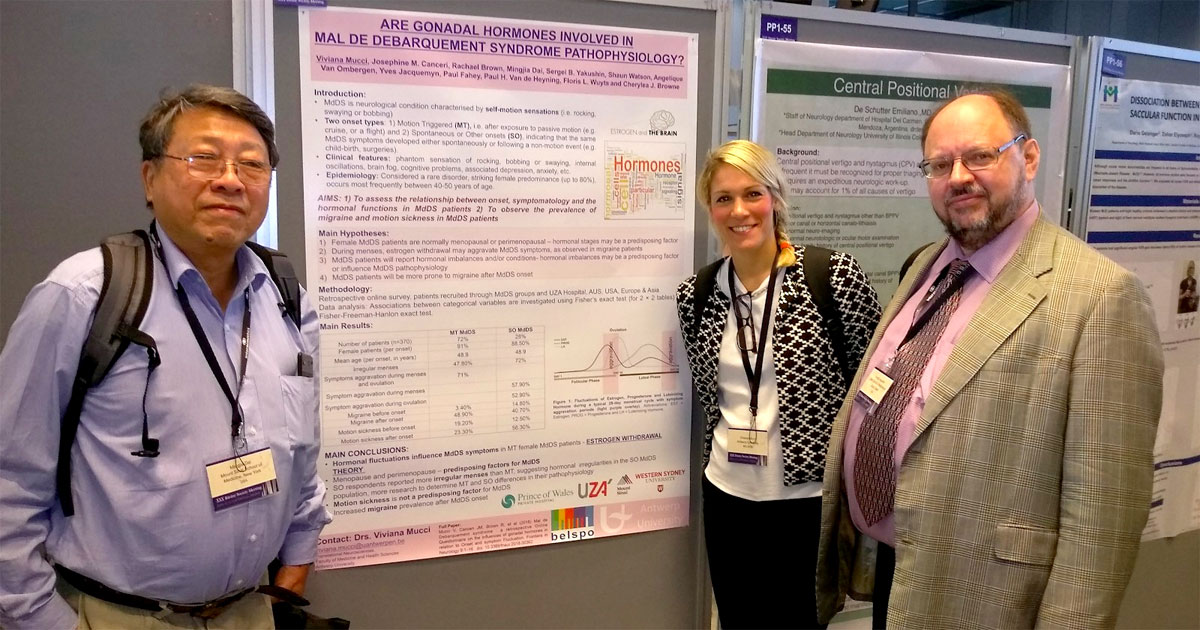
The Mal de Débarquement syndrome is a longstanding interest of mine.
When I first read the work of Dr Dai and his colleagues, I was overjoyed they had developed a treatment for this syndrome, and more importantly had had successful outcomes.
Prior to their work, there was no effective treatment which physiotherapists could offer these patients, and neither did we know the pathophysiological mechanisms underlying this syndrome until Dr Dai proposed a theory based on very sound scientific evidence.
However, there is more research to be done as we do not have all the facts as yet.
Mal de Débarquement Syndrome aka MdDS explained
Here is a simple explainer video about Mal de Débarquement Syndrome, to shed some light on this syndrome.
Research to combat a high rate of misdiagnosis
As Dr Viviana Mucci has said:
“Due to the lack of understanding [of the Mal de Débarquement syndrome] many healthcare professionals are not even aware of the condition, let alone the symptoms that an individual with MdDS experiences. This has consequently led to a high rate of misdiagnosis, delayed diagnosis and poor patient management. Patients report negative diagnostic experiences with mental health consequences and high socio-economic burden on patients and healthcare systems around the world. It is a rare disorder which requires a lot more research to understand the pathology which in turn will enable us to refine current treatment like OKN and develop new treatments.”
If you’d like to learn more and possibly support the reserach, here is a link to their fundraising page.
Research into the Pathophysiology and Therapy Options of Mal de Débarquement Syndrome
Photo credit: The feature image with this article is a picture of the Barany Conference 2018 with the late Dr.Dai (Assistant Professor Icahn School of Medicine, Mount Sinai, NYC, USA) who dedicated his life to researching Motion Sickness and MdDS. It is because of his work that patients can access OKN treatment. On the right side of the picture are Dr. Mucci and Dr.Yakushin.
